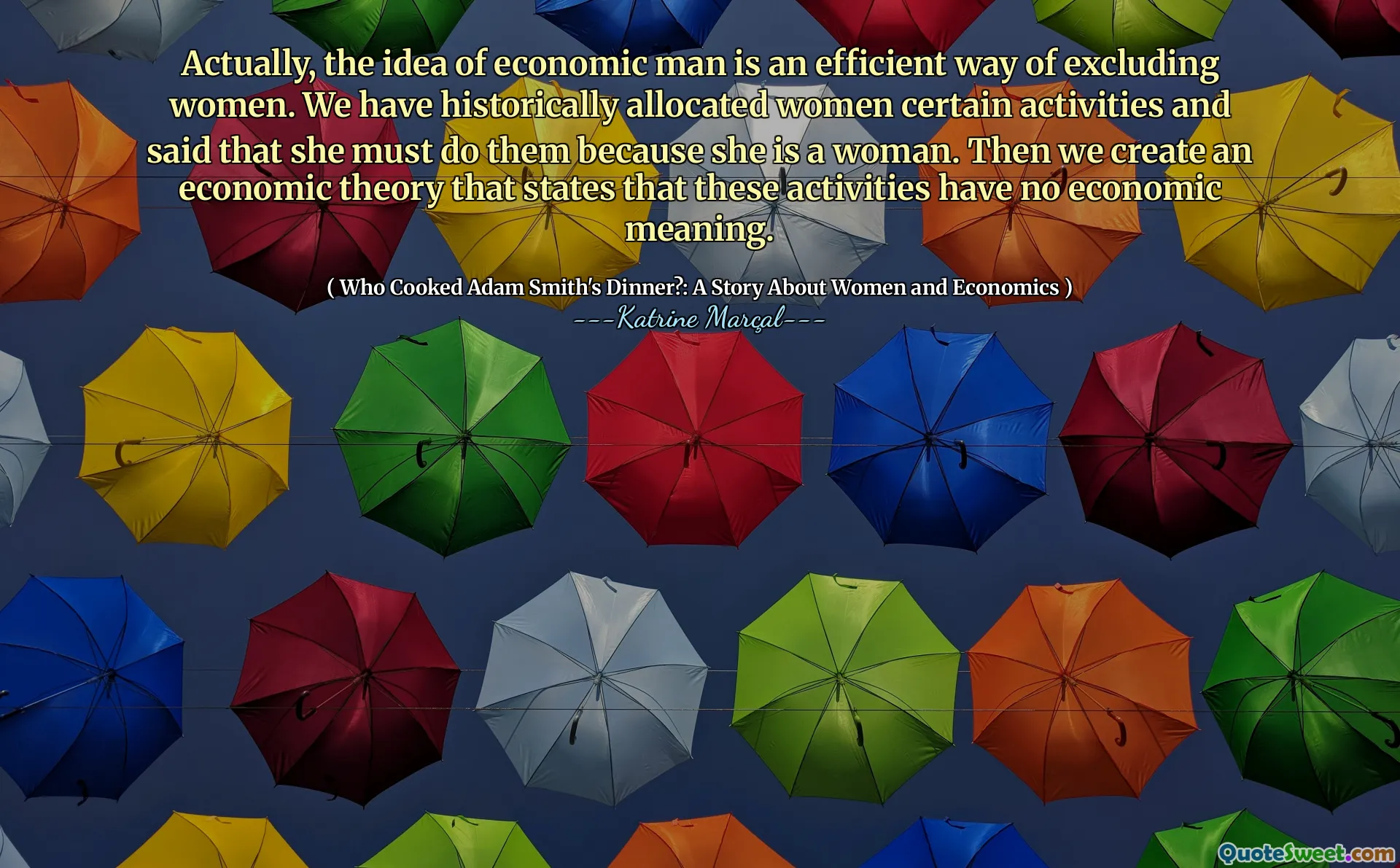
Actually, the idea of economic man is an efficient way of excluding women. We have historically allocated women certain activities and said that she must do them because she is a woman. Then we create an economic theory that states that these activities have no economic meaning.
This quote highlights a profound critique of traditional economic models that often assume a universal 'economic man'—an idealized rational actor—without considering the nuanced social roles and stereotypes assigned to women. Historically, societal norms have confined women to specific domestic and caregiving roles, implicitly suggesting that their work or contributions are less economically significant. These stereotypes are then embedded into economic theories, legitimizing and perpetuating gender inequalities by ignoring the value of women’s labor outside formal markets.
What makes this critique compelling is how it uncovers the underlying biases within economic narratives. By asserting that certain activities performed predominantly by women lack economic value, mainstream economics effectively marginalizes women's contributions, both domestically and professionally. Such theories not only justify existing disparities but also hinder societal progress toward equality. They reinforce a cycle where women's roles are considered 'natural' and private, rendering their work invisible within the broader economic system.
From a broader perspective, this critique invites us to question the assumptions that underpin economic models and to recognize how gender stereotypes influence policy and economic understanding. By re-evaluating what is considered 'economically meaningful,' there is potential to uncover and elevate the undervalued work that women traditionally perform. This also serves as a call for more inclusive and conscious economic frameworks that acknowledge and incorporate diverse experiences and contributions, dismantling barriers rooted in gendered stereotypes.
In essence, recognizing and addressing these embedded biases is crucial for fostering a more equitable economic landscape, one that values all human contributions equally irrespective of gender stereotypes.
( Who Cooked Adam Smith's Dinner?: A Story About Women and Economics ) – Katrine Marçal


